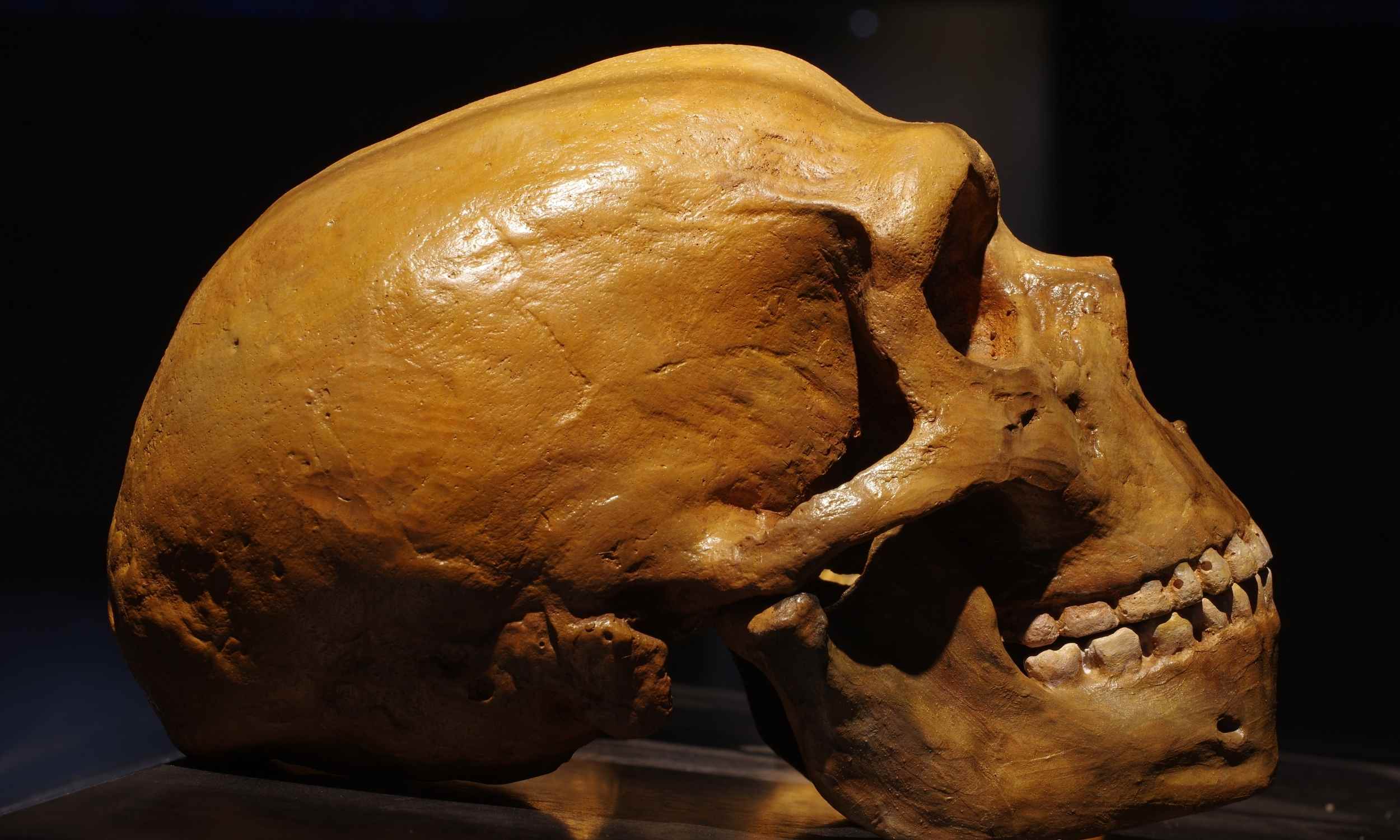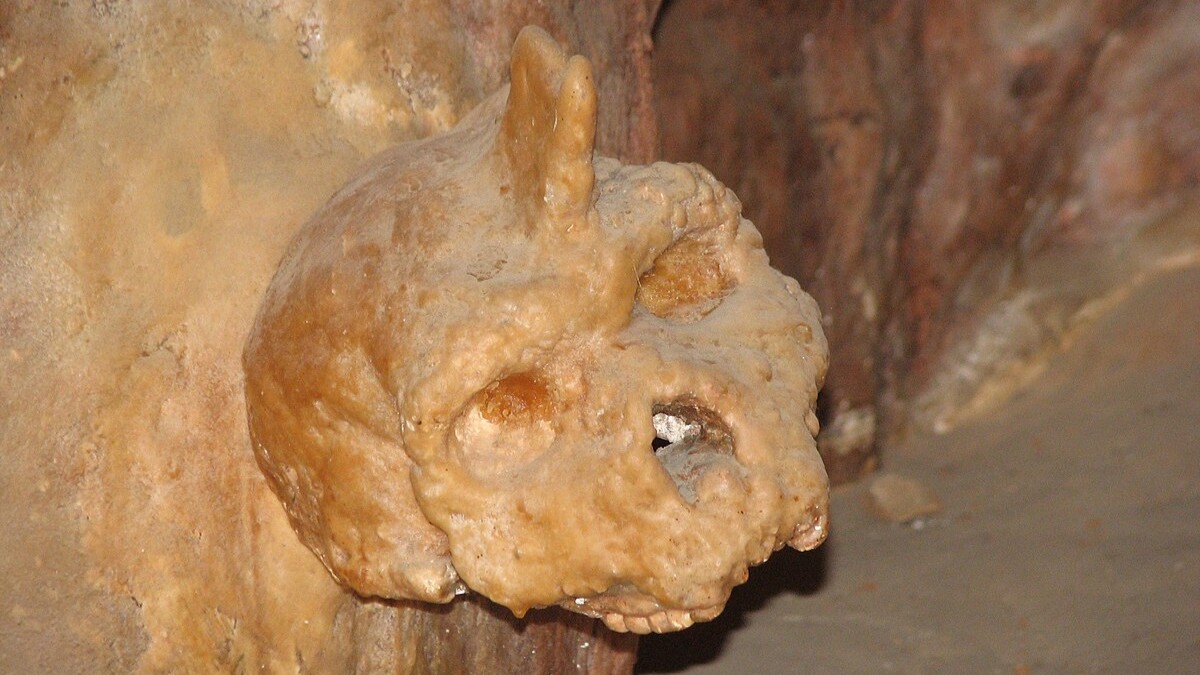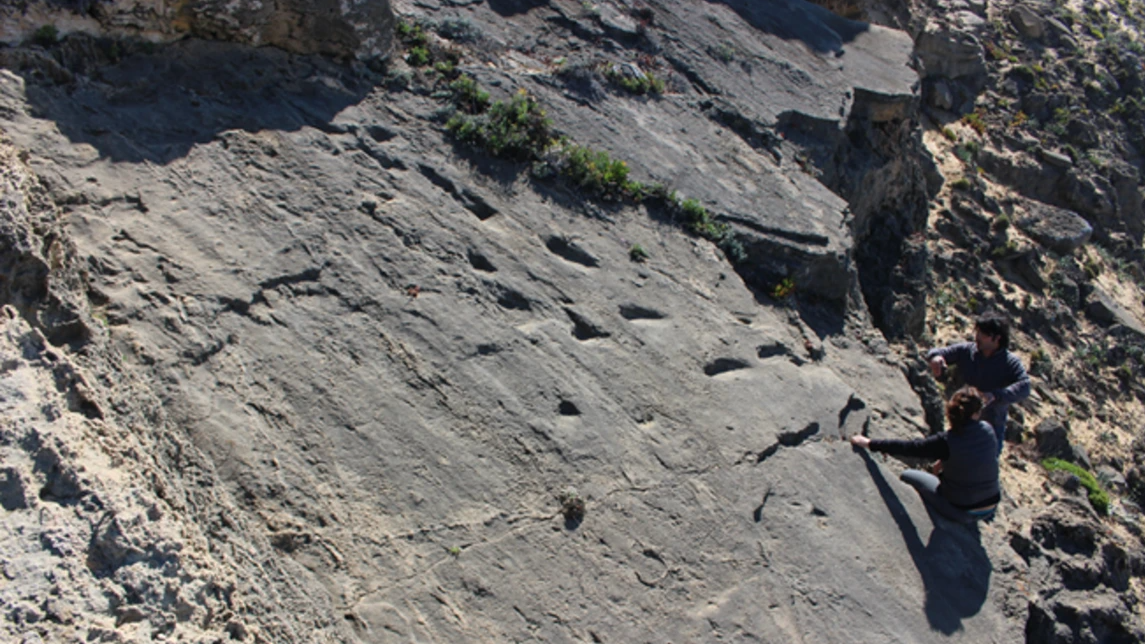A view of the Neanderthal trackway discovered at Monte Clérigo beach in Portugal, with two study authors. Image credits: Carlos Neto de Carvalho. The footprint is ghostly but unmistakable: the shallow impression of a toddler’s foot, just 11 centimeters long, pressed into damp sand. The heel is faint, the arch not yet formed — a sign of a very young …
Read More »Tag Archives: Neanderthal
80,000-Year-Old Neanderthal Footprints Found in Portugal
Archaeologists have discovered two Neanderthals tracksites in the southwestern most region of Europe: at Monte Clérigo, dated to 78,000 years ago, trackways of three individuals demonstrate how Neanderthals navigated dune landscapes; these behaviors suggest route planning, with dune systems serving as advantageous settings for ambush hunting or stalking prey; a single footprint at the site of Praia do Telheiro sustains …
Read More »Humans inherited Neanderthal genes that limit our muscle activity
Most of us carry a small trace of Neanderthal ancestry and, in some cases, that legacy sits in our legs. A single change in a muscle enzyme can subtly throttle how hard muscles can work under pressure. People outside Africa typically carry about 2 percent Neanderthal DNA in their genomes, a result of ancient interbreeding between populations. That shared history …
Read More »Scientists are BAFFLED by a mysterious skull found fused to a cave wall – as analysis reveals it’s NOT human or Neanderthal
At first glance it looks like nothing of this planet – a creature with a pointed object sticking out of its head, half man, half unicorn. But scientists are getting closer to unraveling the mystery of the Petralona skull. The ancient cranium – discovered in Petralona Cave, about 22 miles south–east of Thessaloniki in Greece – is less than 300,000 years …
Read More »Mysterious 300,000-year-old Greek cave skull was neither human nor Neanderthal, study finds
When you buy through links on our articles, Future and its syndication partners may earn a commission. The Petralona skull is a mysterious and important piece in the human evolution puzzle. This image is a reconstruction depicting the skull attached to a cave wall. | Credit: By Nadina, CC BY-SA 3.0, Link A mysterious skull with a stalagmite growing out …
Read More »Denisovan and Neanderthal DNA helped the first Americans survive, study finds – Archaeology News Online Magazine
Denisovan and Neanderthal DNA helped the first Americans survive, study finds Archaeology News Online Magazine The first Americans had Denisovan DNA. And it may have helped them survive. yahoo.com DNA from extinct hominin may have helped ancient peoples survive in the Americas Phys.org Denisovan Mucus Gene May Have Helped Humans Survive in The Americas ScienceAlert Extinct human relatives left a genetic gift that helped …
Read More »Mysterious 300,000-year-old Greek cave skull was neither human nor Neanderthal, study finds
A mysterious skull with a stalagmite growing out of its head is about 300,000 years old and neither human nor Neanderthal, a new study finds. The skull was reportedly discovered attached to the wall of Petralona Cave in northern Greece in 1960. Researchers have since argued about its position on the human family tree and had trouble figuring out its …
Read More »Got Neanderthal DNA? It Might Halve Your Chances of Becoming an Elite Athlete – SciTechDaily
Got Neanderthal DNA? It Might Halve Your Chances of Becoming an Elite Athlete SciTechDaily Source link
Read More »Fermented meat with a side of maggots: A new look at the Neanderthal diet
Traditionally, Indigenous peoples almost universally viewed thoroughly putrefied, maggot-infested animal foods as highly desirable fare, not starvation rations. In fact, many such peoples routinely and often intentionally allowed animal foods to decompose to the point where they were crawling with maggots, in some cases even beginning to liquefy. This rotting food would inevitably emit a stench so overpowering that early …
Read More »78,000-year-old footprints from Neanderthal man, child and toddler discovered on beach in Portugal
Just before the first COVID lockdown in March 2020, Carlos Neto de Carvalho and his wife, Yilu Zhang, were walking along Monte Clérigo beach in southern Portugal. As the geologist and geographer couple scrambled over rocky outcrops and an old collapsed cliff, they stumbled on a series of ancient Neanderthal footprints. “It was early in the morning of a sunny …
Read More »






